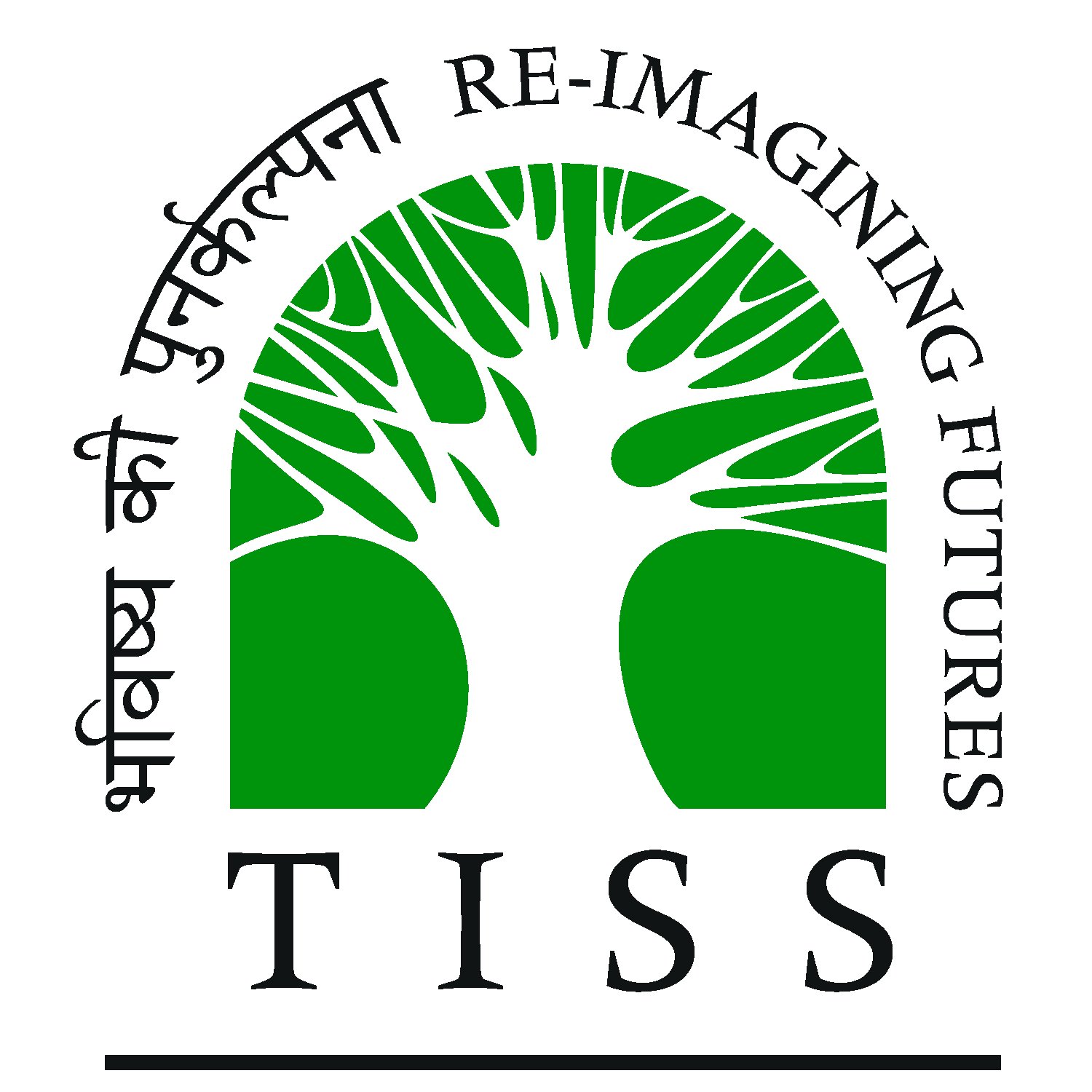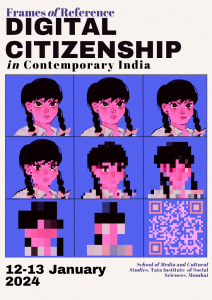FRAMES OF REFERENCE 2024
National Post-graduate Student Seminar
School of Media and Cultural Studies, Tata Institute of Social Sciences, Mumbai
Call for Papers and Presentations
Digital Citizenship in Contemporary India
12th and 13th January 2024
Access to digital devices and the Internet is increasingly seen as crucial for practising, enhancing, and enjoying citizenship; a phenomenon that we may loosely recognise as digital citizenship. Digital and online technologies have become an integral part of our lives, providing opportunities for education and work, collaboration and community-building, social development and progress, even as a majority of such infrastructure has come to be owned by private interests who profit from exploiting user data in a variety of ways. Nonetheless, access to digital and online technologies enables expression and connections that facilitate economic, social, and cultural rights that together constitute citizenship. Without such access, citizenship stands to be eroded of its substantive qualities in contemporary times. It is also true that while some individuals get to enjoy full citizenship, others experience a deficit because of historical and structural inequalities.
Even as we navigate this terrain marked by private interests and social and economic inequalities, it is essential to explore what the concept of digital citizenship may mean in contemporary India and how to make it more inclusive and responsive. Amid the pandemic-induced digital acceleration, the country stands at a crucial juncture for defining its digital citizenship landscape. While the digital divide has marginally improved through a combination of state policy and private sector participation, the situation is far from ideal. Especially concerning are the issues around user data and its surreptitious use for a range of commercial and governance applications without much transparency or recourse to redressal. Equally worrying are the ways in which online spaces have been used by individual and organised groups to troll and harass journalists, human rights defenders, and gender, caste, and religious minorities.
Neither ‘digital’, nor ‘citizenship’ are stable ideas in a fixed relationship with each other as has been made abundantly clear during the Covid-19 pandemic, when social and economic relations were strained by unprecedented duress. Citizens, especially the younger ones, have used this uneven terrain of digital and online technologies to inscribe themselves in the public sphere through ingenuity and creativity, especially when restricted from accessing public spaces and institutions, such as the mainstream media. From explicitly political actions involving the use of social media for organising, gaining visibility, and amplification of their concerns, to more reflexive artistic expressions, young people have used digital and online media to not merely assert their citizenship but to also enliven and enrich it.
Also, given the affordances and reach of digital and Internet technologies, the notion of digital citizenship is becoming increasingly difficult to circumscribe within the context of nation-state; its horizons exceed national or territorial boundaries, especially in the context of flows of global capital, global value chains and labour, displacement and migration, and shared concerns around ecology.
Frames of Reference 2024 seeks to probe how the country’s diverse regions and communities engage with the idea of citizenship, access information technology resources, and understand digital rights and responsibilities. Spotlighting issues like online governance, digital inclusion, data privacy, ethical use, and the public sphere, the conference aims to facilitate conversations on the complex and dynamic terrain of digital citizenship in contemporary India.
Brief proposals for paper presentation are invited addressing, but not limited to, the following themes:
- Citizenship in both national and global contexts with a reference to digital infrastructures, policies, and practices
- Digital divide: Geography, identity, and terms of access
- Democratic norms and processes
- Populism, propaganda, and disinformation
- e-Governance, including digitisation of public data and services
- Political-economy of the Internet and digital media
- The role of the private sector in digital and online media. Concerns around consolidation and emergence or oligopolies
- Transparency concerns around data protection and surveillance and their economic and political impact
- Digital media and the public sphere – participation, cultural production, and public opinion
- Displacement: Refugees and Migration
- Trolling, stalking, online harassment and sexual violence.
- Users/audiences: Anxieties around screen use, online presence, AI, etc
- Methods: Studying digital cultures
The conference will be held at the Tata Institute of Social Sciences campus in Mumbai in January 2024. In addition to papers, we also welcome proposals for presentation of digital media projects and artefacts (data visualisations, apps, etc), online archival projects (oral histories, digitisation projects, etc), artistic/creative projects (short films and videos under 15 minutes, podcasts, comics, etc).
Interested post-graduate students registered with Indian institutions may submit brief abstracts of their proposed papers (300 words) and presentations (500 words along with relevant links) through this form. Selected papers and presentations will be organised into thematic panels and each speaker will be allocated 15 minutes to present their work, followed by a 30-minute discussion for all the panel speakers.
Travel and Hospitality Support
This conference is supported by a grant from the American Jewish World Service. The organisers will be happy to support the travel costs (sleeper class train tickets), stay (2 nights, twin-sharing), and meals for one participant per paper or presentation.
Important Dates
Abstract Submission: 3 October 2023
Announcement of selected abstracts: 13 October 2023
Submission of final papers/presentation: 15 December 2023
Publication of conference schedule: 22 December 2023
Conference dates: 12 and 13 January 2024.
If you have any questions, please feel free to reach out
Email: framesofreference.smcs@gmail.com
Phone: 8580642013 (Yashsavi)/7304284008 (Sohini)


